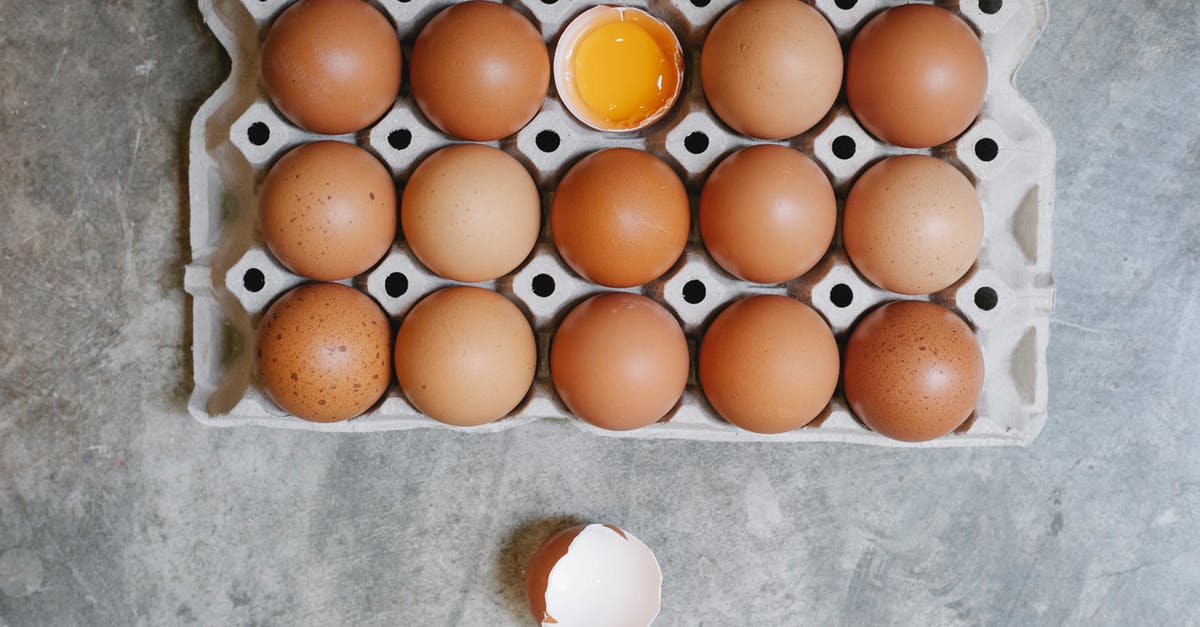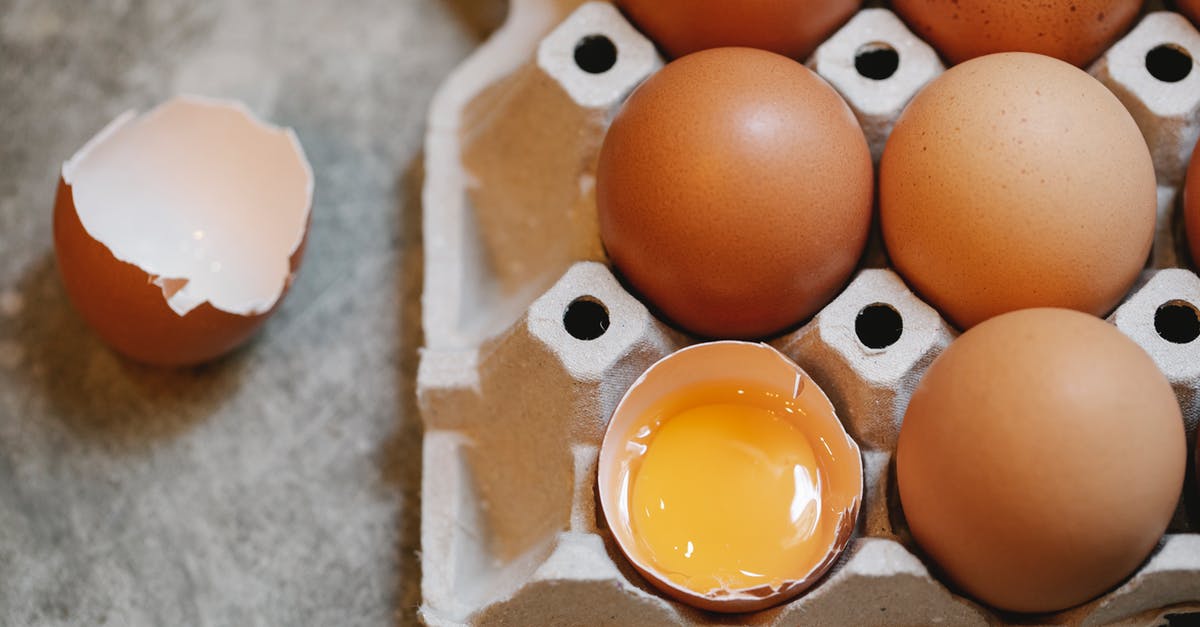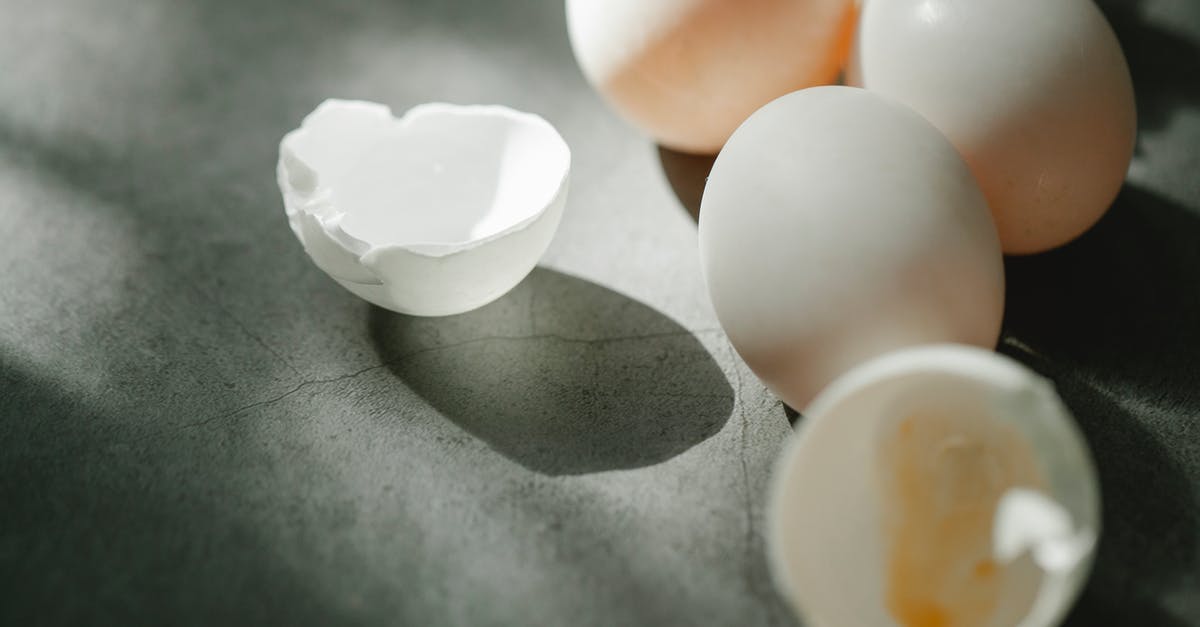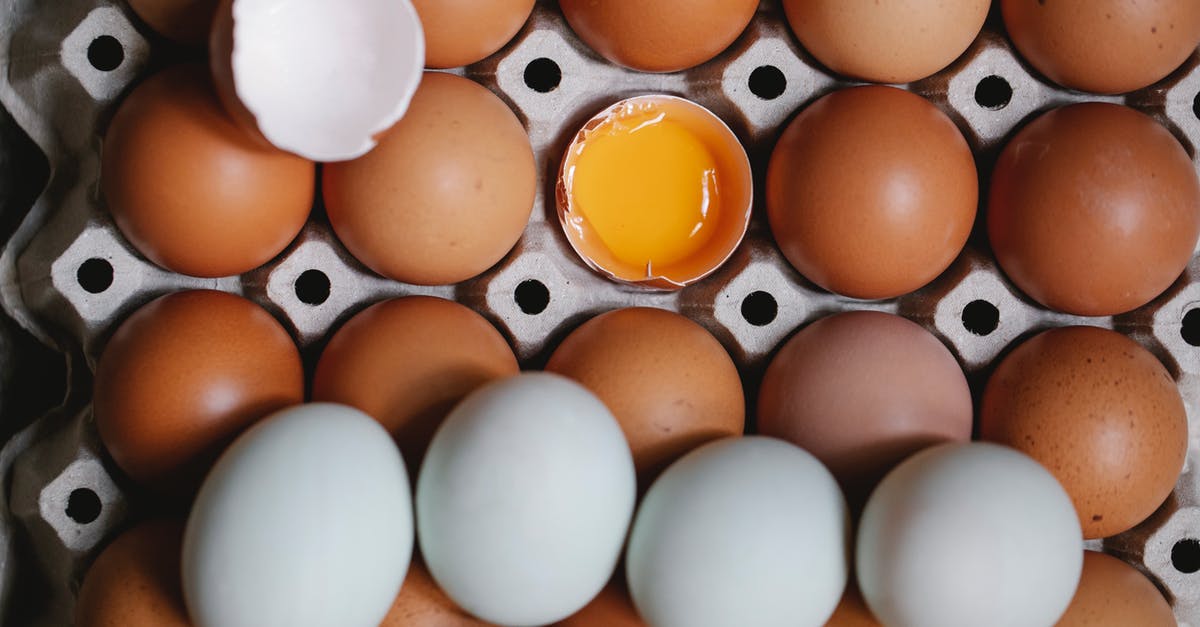water in egg shell when cracking open to cook

I purchased some eggs recently and when i went to crack them open to cook there was what seemed to be water in the egg shell. Is this normal because all of the other eggs i have prepared before the inside was not runny like water.
Best Answer
A number of things can result in watery albumen. Older birds especially of high lay breeds like hybrids used in battery farms are more prone to it especially as they get older. These are often also associated with thin, very fragile shells. If the egg is stored at too high of temperature, or as mentioned in comments, too low, the albumen can become watery as well. Rough handling of eggs can cause some breakdown which can display as runny whites as well. In especially warm weather, I have seen it with free range chickens simply because they are drinking so much to stay cool. The most pronounced cause though tends to be age and it can be especially noticeable if the egg is both old and stored at too high a temperature.
There are two quick tests on age of an egg, either of which are always accurate for commercial eggs because there are ways to cheat these tests. Easiest is put the egg in water. If it lies flat, it should be fresh. If it stands upright, it is getting old and if it floats, I won't say it is bad, but it is certainly old and could be. The 2nd way is to shine a light through the egg. This is called candling because it used to be done with candles. Use a small flashlight of similar and cover the edges so you do not see the light directly, only what goes through, and use a dark room. At the rounder end you should see an empty area which is an air cell. The older the egg, the bigger the air cell and you may see a line where the air cell has grown. The shell is porous, and water evaporates out which increases the size of the air cell with age, but as it ages the albumen also loses some of its structure and looks more watery when cracked. The air cell size increase is what also caused the standing up, and then floating in water. These can be cheated by producers who do things to shells to make then less porous or storing them in high humidity to reduce the evaporation rate.
It is possible, but unlikely that it actually is water as well. In most places in the US at least it is not legal to actually submerse eggs while cleaning them though. The egg is porous, so if submersed, especially if the water is colder than the egg, the egg can draw in water, so this is not allowed. It can be done against these rules, or by accident, and these rules are not true in all countries. I would be surprised it that was the case for you though.
Pictures about "water in egg shell when cracking open to cook"



What does it mean when you crack an egg and its watery?
When an egg broken onto a flat surface has a watery, spread-out white, this usually indicates that the egg is stale. The height of the white and the weight of the egg are used to calculate a value in Haugh units on a scale of 0 to 110; the lower the value, the staler the egg.Can eggs have water in them?
An egg white is about 10% protein and 90% water.Are watery egg white safe to eat?
Remember, watery egg whites are perfectly normal for older hens to lay and can be safely eaten, providing they are fresh and shells have no cracks in them (which can let bacteria in).Are cracked eggs acceptable for pooling and cooking?
If you accidentally crack the shell of an egg before you plan to use it, break the egg into a clean container, cover tightly, refrigerate, and use within two days in a recipe that is baked.How to poach an egg
Sources: Stack Exchange - This article follows the attribution requirements of Stack Exchange and is licensed under CC BY-SA 3.0.
Images: Klaus Nielsen, Klaus Nielsen, Klaus Nielsen, Klaus Nielsen
